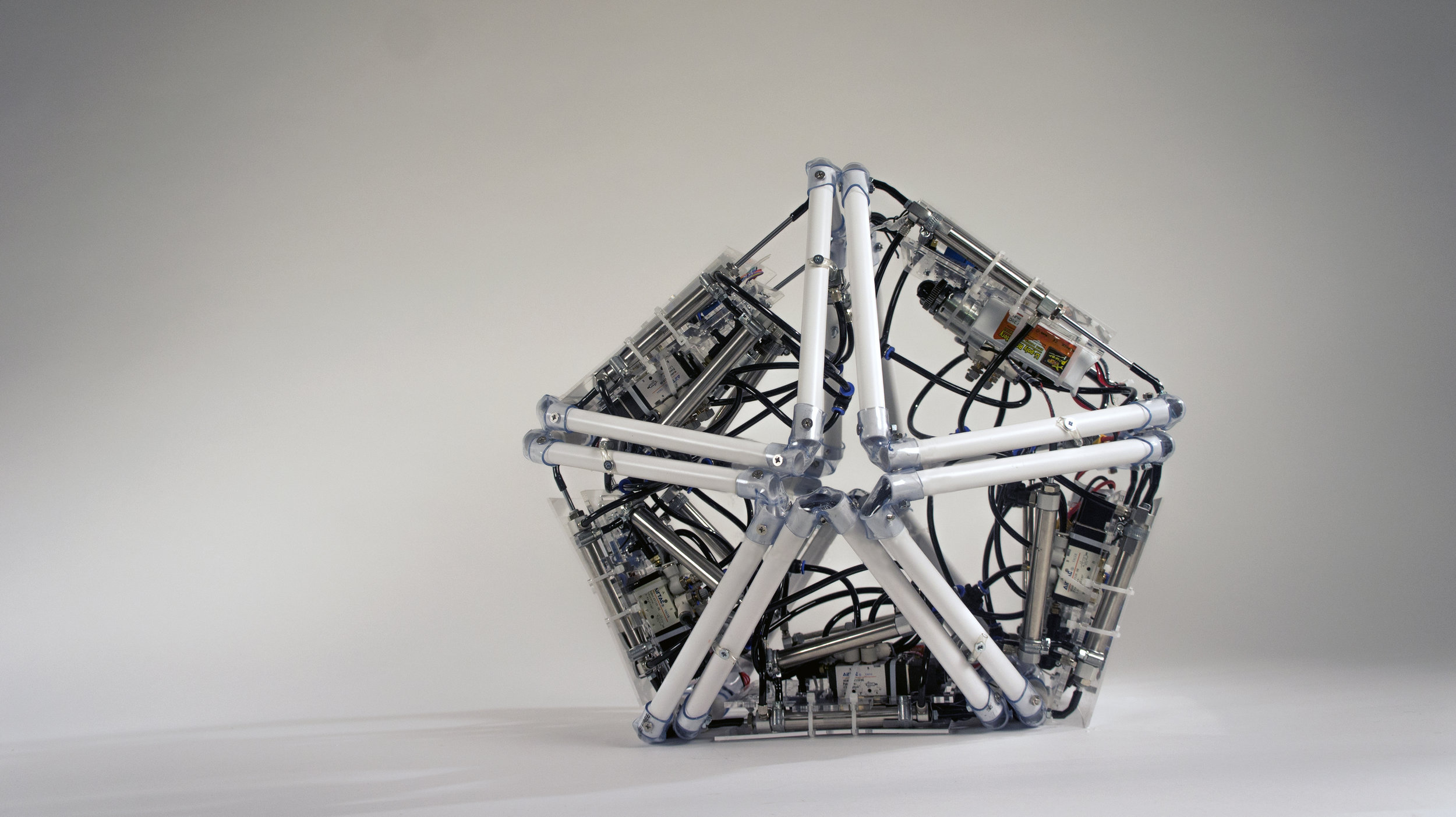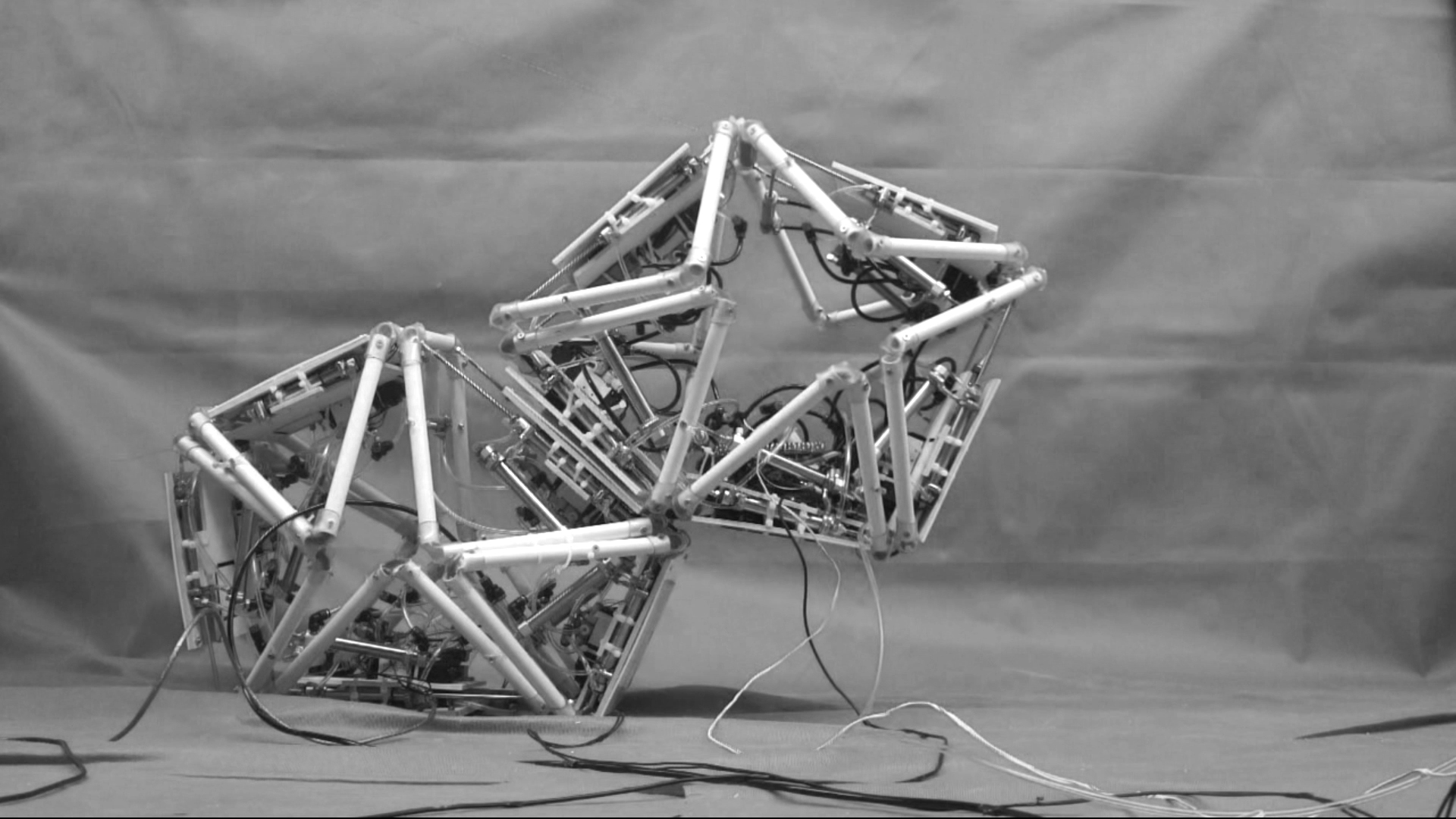Behavioural Complexity 2014-2016
DELTA
Studio Theodore Spyropoulos
Tutors Mostafa El-Sayed, Apostolis Despotidis
Team Necdet Yagiz Özkan (Turkey), Anju Veerappa Satish (India), Avneesh Rathor (India), Irina Igorevna Safonova (Russia)
The research follows a systematic exploration of design, wherein each of the generated units are integrated with genetic algorithms and evaluated to extract the best working version of the unit which is then tested and realised into a fully scaled prototype. The units are designed to sense their surrounding
environment and respond at the level of an individual unit and also in collective formations. Different taxonomies of body plans are sequentially actuated to result in specific movement patterns and actions suitable to their surroundings. These body plans are capable of interacting and combining with each other at high population to result in emergent behaviours that adapt to the changing needs of the user and conditions.
The project explores variousgrowth and communication strategies that occur between the units. There is a continuousflow and distribution of information within thesystem to enable them to constantly restructure and adapt to the changing environment. Along the process of communication, there is an effort to develop learning and decision making capabilities among the units to make the overall autonomous system more robust. The project proposes at creating real-time adaptation and assembly of materiality to achieve dynamic flexibility of spatial configuration. It is a continuous process of realising architecture as a dynamic spatial interface for living and interaction rather than a static form.




























